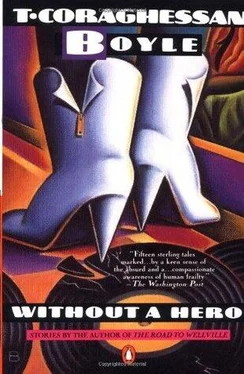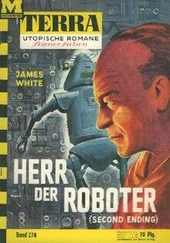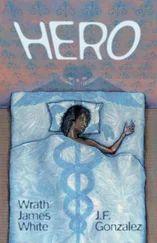T. Boyle - Without a Hero
Здесь есть возможность читать онлайн «T. Boyle - Without a Hero» весь текст электронной книги совершенно бесплатно (целиком полную версию без сокращений). В некоторых случаях можно слушать аудио, скачать через торрент в формате fb2 и присутствует краткое содержание. Год выпуска: 1995, Издательство: Penguin Books, Жанр: Современная проза, на английском языке. Описание произведения, (предисловие) а так же отзывы посетителей доступны на портале библиотеки ЛибКат.
- Название:Without a Hero
- Автор:
- Издательство:Penguin Books
- Жанр:
- Год:1995
- ISBN:нет данных
- Рейтинг книги:3 / 5. Голосов: 1
-
Избранное:Добавить в избранное
- Отзывы:
-
Ваша оценка:
- 60
- 1
- 2
- 3
- 4
- 5
Without a Hero: краткое содержание, описание и аннотация
Предлагаем к чтению аннотацию, описание, краткое содержание или предисловие (зависит от того, что написал сам автор книги «Without a Hero»). Если вы не нашли необходимую информацию о книге — напишите в комментариях, мы постараемся отыскать её.
Greasy Lake
People
Without a Hero
The Philadelphia Inquirer
Without a Hero — читать онлайн бесплатно полную книгу (весь текст) целиком
Ниже представлен текст книги, разбитый по страницам. Система сохранения места последней прочитанной страницы, позволяет с удобством читать онлайн бесплатно книгу «Without a Hero», без необходимости каждый раз заново искать на чём Вы остановились. Поставьте закладку, и сможете в любой момент перейти на страницу, на которой закончили чтение.
Интервал:
Закладка:
And then the telephone began to ring. My mother answered each call with quiet determination, immovable, unshakable, whispering into the phone, doodling on a pad, lifting the drink or a cigarette to her lips. I don’t know what she said exactly, but she was talking to the other mothers, the mothers of sons who hadn’t been invited to the dance by Maki Duryea, and she was explaining to them precisely how and why she could and would allow her son to go to the dance with a Negro. In later years, as the civil-rights movement arose and Malcolm X and Martin Luther King fell and the ghettoes burned, she never had much to say about it, but I could feel her passion then, on the telephone, in the cool insistent rasp of her voice.
I went to the dance with Maki Duryea. She wore a stiff organdy dress with short sleeves that left her looking awkward and under-dressed and I wore a tie and sportcoat and arranged my hair for the occasion. I held her and I danced with her, though I didn’t want to, though I snapped at her when she asked if I wanted a brownie and a cup of punch, though I looked with envy and longing to the streamer-draped corner where Casper alternately leered at me and punched Billy Matechik in the shoulder; I danced with her, but that was it, that was as far as I could go, and I didn’t care if the snow was black and the dome blew off the reactor and Johnny Atom came and melted us all in our sleep.
It was a late spring and we tried to force it by inaugurating baseball season while the snow still lingered atop the dead yellow grass and the frozen dirt beneath it. We dug out balls and mitts and stood in the street in T-shirts, gooseflesh on our arms, shoulders quaking, a nimbus of crystallized breath suspended over our heads. Casper didn’t play ball — foot, hand, base or basket — and he stood hunched in his jacket, palming a cigarette and watching us out of his mocking gray eyes. I caught cold and then flu and stayed in bed a week. On the first of April I went trout fishing, a ritual of spring, but the day was gloomy and lowering, with a stiff wind and temperatures in the twenties. I cast a baited hook till my arm lost all sensation. The trout might as well have been extinct.
Since the time of the dance I’d had nothing to do with Maki Duryea. I wouldn’t even look at her. If she’d suddenly exploded in flames on the playground or swelled up to the size of a dirigible I wouldn’t have known. I’d taken a steady stream of abuse over the dance episode, and I was angry and embarrassed. For a full month afterward I was the object of an accelerated program of ear snapping and head knuckling, the target of spitballs and wads of lined notebook paper with crude hearts scrawled across their rumpled interiors, but we were innocent then, and no one used the epithets we would later learn, the language of hate and exclusion. They turned on me because I had taken Maki Duryea to the dance — or rather, because I had allowed her to take me — and because she was different and their parents disapproved in a way they couldn’t yet define. I resented her for it, and I resented my mother too.
And so, when the rumors first began to surface, I took a kind of guilty satisfaction in them. There had been trouble at Maid’s house. Vandals — and the very term gave me a perverse thrill — vandals had spray-painted racial slurs on the glistening black surface of their macadam driveway. My mother was incensed. She took her drink and her cigarettes and huddled over the phone. She even formed a committee of two with Casper’s mother (who was one of the few who hadn’t phoned over the dance invitation), and they met a time or two in Casper’s living room to drink a clear liquid in high-stemmed glasses, tap their cigarettes over ashtrays and lament the sad state of the community, the development, the town, the country, the world itself.
While our mothers were wringing their hands and buzzing at one another in their rasping secretive voices, Casper took me aside and showed me a copy of the local newspaper, flung on the lawn not five minutes earlier by Morty Solomon as he weaved up the street on his bicycle. I didn’t read newspapers. I didn’t read books. I didn’t read anything. Casper forced it into my hands and there it was, the rumor made concrete: VANDALS STRIKE AGAIN. This time, a cross had been burned on the Duryea lawn. I looked up at Casper in amazement. I wanted to ask him what that meant, a cross — a cross was religious, wasn’t it, and this didn’t have anything to do with religion, did it? — but I felt insecure in my confusion and I held back.
“You know what we ought to do?” he said, watching me closely.
I was thinking of Maki Duryea, of her hair and her placid eyes, thinking of the leaping flames and the spray paint in the driveway. “What?”
“We ought to egg them.”
“But—” I was going to ask how we could egg them if we didn’t know who did it, but then I caught the startling perverse drift of what he was suggesting and in my astonishment I blurted, “But why?”
He shrugged, ducked his head, scuffed a foot on the carpet. We were in the hallway, by the telephone stand. I heard my mother’s voice from the room beyond, though the door was closed and she was talking in a whisper. The voice of Casper’s mother came right back at her in raspy collusion. Casper just stared at the closed door as if to say, There, there’s your answer.
After a moment he said, “What’s the matter — you afraid?”
I was twelve now, twelve and a half. How could anyone at that age admit to fear? “No,” I said, “I’m not afraid.”
The Duryea house lay outside the confines of the development. It was a rental house, two stories over a double garage in need of paint and shingles, and it sat on a steep rutted dirt road half a mile away. There were no streetlights along that unfinished road and the trees overhung it so that the deepest shadows grew deeper still beneath them. It was a warm, slick, humid night at the end of May, the sort of night that surprises you with its richness and intensity, smells heightened, sounds muffled, lights blurred to indistinction. When we left Casper’s it was drizzling.
Casper bought the eggs, two dozen, at the corner store out on the highway. His parents were rich — rich compared to mine, at any rate — and he always seemed to have money. The storekeeper was a tragic-looking man with purple rings of puffed flesh beneath his eyes and a spill of gut that was like an avalanche beneath the smeared white front of his apron. Casper slipped two cigars into his pocket while I distracted the man with a question about the chocolate milk — did it come in a smaller size?
As we started up the dirt road, eggs in hand, Casper was strangely silent. When a dog barked from the driveway of a darkened house he clutched my arm, and a moment later, when a car turned into the street, he pulled me into the bushes and crouched there, breathing hard, till the headlights faded away. “Maki Duryea,” he whispered, chanting it as he’d chanted it a hundred times before, “Maki Duryea, Maki Duryea.” My heart was hammering. I didn’t want to do this. I didn’t know why I was doing it, didn’t yet realize that the whole purpose of the exercise was to invert our parents’ values, trash them, grind them into the dirt, and that all ethical considerations were null in the face of that ancient imperative. I was a freedom fighter. The eggs were hand grenades. I clutched them to my chest.
We hid ourselves in the wild tangle of shrubs gone to seed outside the house and watched the steady pale lighted windows for movement. My hair hung limp with the drizzle. Casper squatted over his ankles and fingered his box of eggs. I could barely make him out. At one point a figure passed in front of the window — I saw the hair, the mat of it, the sheen — and it might have been Maki, but I wasn’t sure. It could have been her mother. Or her sister or aunt or grandmother — it could have been anybody. Finally, when I was as tired of crouching there in the bushes as I’ve ever been tired of being anywhere, even the dentist’s, the lights flicked off. Or no, they didn’t just flick off — they exploded in darkness and the black torrent of the night rushed in to engulf the house.
Читать дальшеИнтервал:
Закладка:
Похожие книги на «Without a Hero»
Представляем Вашему вниманию похожие книги на «Without a Hero» списком для выбора. Мы отобрали схожую по названию и смыслу литературу в надежде предоставить читателям больше вариантов отыскать новые, интересные, ещё непрочитанные произведения.
Обсуждение, отзывы о книге «Without a Hero» и просто собственные мнения читателей. Оставьте ваши комментарии, напишите, что Вы думаете о произведении, его смысле или главных героях. Укажите что конкретно понравилось, а что нет, и почему Вы так считаете.











